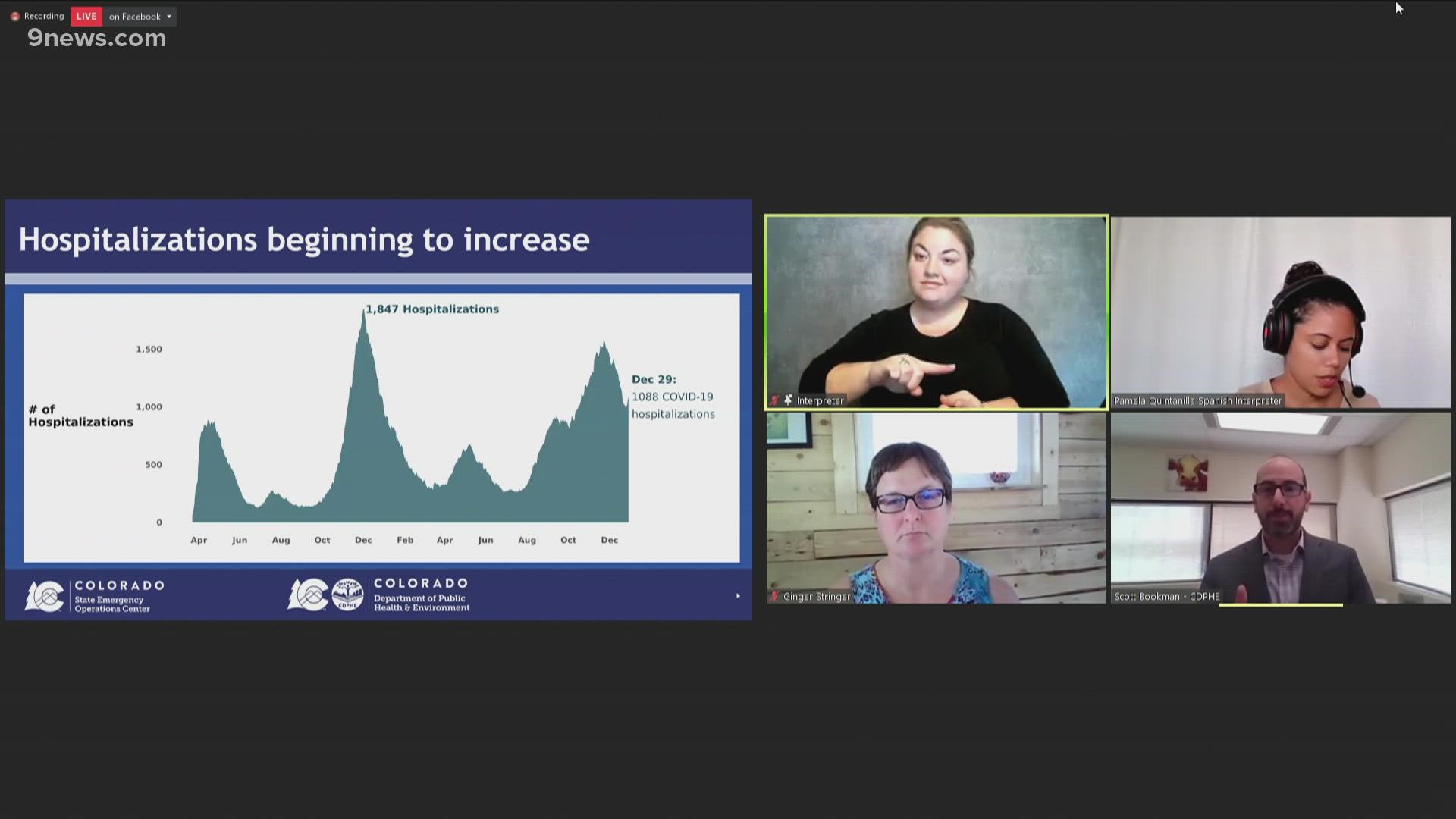DENVER — It's too early to know when the COVID-19 omicron variant will peak in Colorado, as cases increase and demand for testing remains high, state health officials said Thursday.
Omicron cases in other parts of the U.S. and the world have increased at a fast rate, and "when we go up fast, it also comes down fast," said Scott Bookman, the state's COVID-19 incident commander, at Thursday's news conference.
But it's too early to predict a peak in Colorado, he added.
As of last week, the highly transmissible omicron variant was responsible for 91% of cases in the state, according to the Colorado Department of Public Health and Environment (CDPHE).
As the demand for COVID-19 PCR testing remains high, Bookman encouraged people to check the CDPHE website for locations and scheduling, and to make an appointment to decrease the wait time.
He said there have been isolated reports of extreme delays at some sites and also reports of testing-site employees being treated poorly.
"We know when there are delays, it can be frustrating," Bookman said. "We're in this together. We're working as hard as we can to keep everyone safe."
Meanwhile, rapid at-home test kits are experiencing a national shortage. Bookman said that the state is working with Abbot, the maker of BinaxNOW tests, to try to get more kits for the state's free Rapid At-Home Testing Program but there might not be tests currently available.
For those who are fully vaccinated and boosted, the risk of severe illness from the omicron variant is minor. Those who are not vaccinated are at a higher risk of hospitalization.
Currently, 1,088 people are hospitalized with COVID in Colorado, and hospitalizations are beginning to increase, Bookman said.
Some COVID testing sites – including those at Dick's Sporting Goods Park and Water World – double as vaccination sites. Bookman encouraged people who are not yet vaccinated against COVID-19 to do so.
"As we see increasing cases, the more protection we have, the better off we'll all be," he said.
Monoclonal antibody treatments aren't as effective against omicron. Only one antibody type is effective, and that is in very short supply, Bookman said. Colorado receives its supplies from the federal level and went from receiving at least 4,000 doses per week to about 300-400 doses per week.
Dr. Eric France, the state's chief medical officer, said on Wednesday that the omicron variant has a shorter incubation time (one to three days) and a shorter period of time when an infected person is contagious than previous variants, so the state has updated its quarantine recommendations.
- Anyone who tests positive should stay home for five days, then wear a mask after leaving quarantine.
- Those who are fully vaccinated and boosted don't have to quarantine when exposed but should wear a mask.
- Those who aren't vaccinated and boosted should quarantine for five days when exposed to COVID-19.
The recommendations come from the Centers for Disease Control and Prevention (CDC), which Bookman said is working off the best evidence it has available to them on the omicron variant.
SUGGESTED VIDEOS: COVID-19 Coronavirus

